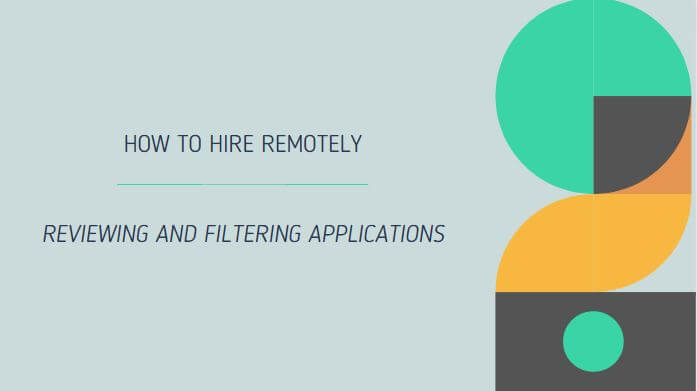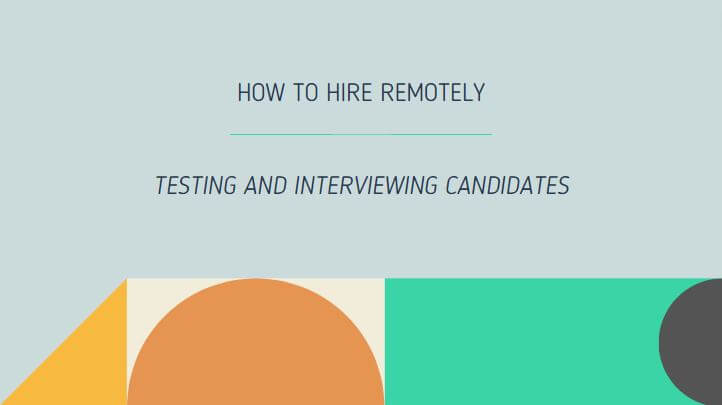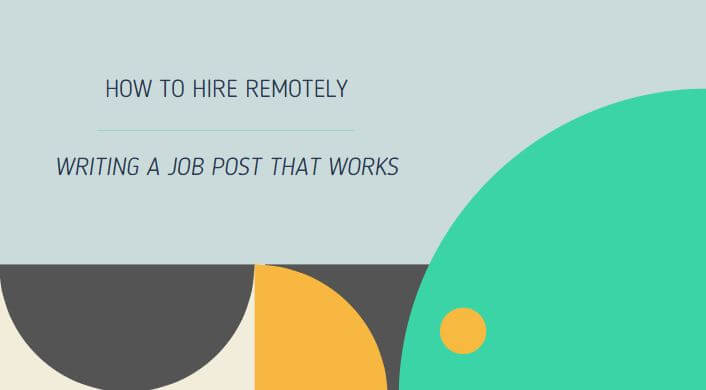- Intro
- Part 1 – Do You Need to Hire At All?
- Part 2 – Writing a Job Post That Works
- Part 3 – Reviewing and Filtering Applications
- Part 4 – Testing and Interviewing Candidates
- Part 5 – Review: Choosing the One
Well done, you’re at the very final stage.
It’s time to review all the notes you’ve made in your scoring and tracker sheet and choose the candidate you’re going to offer the role to….
So long as there’s someone who’s good enough!
All being well, you’re going to have some great candidates to choose from and the hardest part will be choosing just one to hire.
However, if none of them are truly what you need, then never be afraid to say no to all of them and do another round of review/testing/interviewing.
As much as you might not want to contemplate taking more time over the hiring process, or to do more interviews, making the wrong decision now will cost you vastly more time and energy, and money, in the long run.
Go back through your notes from the interviews and give scores for each key section.
Note: Check out the resources linked below for an example interview scoring sheet you can use.
Having given all candidates the same core questions, you can have a fair approach to scoring their answers.
This is particularly useful with scenario-based questions. You can score them either from 1 to 5, with 1 being not great, 3 being ok and 5 being great. Or you can keep to the simple approach of Not Good Enough, Good Enough, and Great that you used when doing the initial scoring of their application.
Either is fine and will give you a simple numerical score that you can use to compare the candidates and help guide your decision-making.
Total up the scores and identify your top 1-3 candidates based on who scored the most.
How do you feel about the idea of hiring each of the top three?
All being well, you’ll feel good about all three. However, one will usually stick out as the one you want.
Go through all the notes you’ve made about each one and look for anything that’s particularly good or particularly concerning. Are there any points you had noted to address that you aren’t comfortable with yet?
If there are details missing or you’d like to clarify some things, then I recommend contacting them to ask any questions you’ve got. I’d always prefer to make a fully informed decision rather than make an assumption that may turn out to be incorrect.
If you scored each candidate as you did each interview, then compare the scores and check that you weren’t overly harsh or overly generous with the first or the last interviews.
When you interview your first candidate you don’t have anything to compare them against. Doing this review after you’ve completed all your interviews helps to ensure you’ve scored them against the same baseline.
To do this, review the answers that candidates gave and see if you still agree with the scores you gave them. If not, then adjust until it feels right.
If the candidate that you feel best about has come out in the top three, that’s great. Have a check of the others to make sure you’re not missing anything and then trust your instinct.
If they haven’t come out in the top three, ask yourself why that is. What have you missed? Perhaps they were really likeable, but they just didn’t answer the questions as well as the other candidates?
This is where you need to balance how much you liked them with your ability to work with them and their ability to actually do the job you need.
This is a big decision.
Once I’ve identified the top candidate that I plan to offer to, I’ll normally take at least 24 hours before making an offer. Whilst we all want to move quickly I find that sleeping on something helps me to check if there’s anything else I should be looking into or cements that I’m feeling good about my decision.
Once you’ve chosen the person you want to hire, take a little time to think about the offer that you’re going to make to them.
- What’s important to them?
- What are their salary expectations?
- Did they mention anything that was really important to them? Can you make a tiny bit of effort to make your offer even more compelling and meaningful to them?
Craft an offer that will hopefully appeal to them based on what they’ve said is important to them, whilst making sure it still works for you too.
Things to include in your offer:
- Salary and frequency of payment
- Paid holidays
- Paid sickness
- Training
- Benefits / Perks
When considering paid holidays, one key thing to bear in mind is that public holidays vary between different countries, so decide whether you’re going to offer paid public holidays at all.
I find it’s often simpler to just stick to a set number of paid days off. Then they can choose to work their public holidays or take them off as they wish.
You don’t need to have all this mapped out in advance. You can always discuss it with them and figure out what’s important to them on the call.
Arrange a call to discuss the offer with them making sure you let them know how pleased you are with the process, how they came across, and how much you’re looking forward to working with them. Whilst on the call you’ll also need to discuss the start date so you can both agree on when they’ll start.
Whilst you might be keen for them to start immediately, you may have work to do so that everything is ready for them to start. Consider giving yourself a few days to be fully ready for their start and onboarding even if they’re available immediately.





